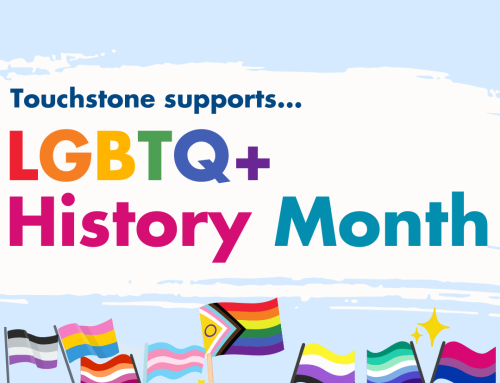Part of the service offered by Kirklees Advocacy Service is to support people who are detained in hospital because of their mental health to get clear answers about their treatment and to have their own opinions and concerns heard and acknowledged. Even for those with considerable confidence, the unfamiliar environment and routines of a hospital can be unsettling and patients may well need some additional support.
Ward rounds are regular meetings between hospital patients and the care professionals working on their case, so that they can discuss and evaluate treatment and plan for discharge and care after discharge. As in these two cases, an advocate can support a patient to prepare for and attend ward rounds, so that they can be clear about what they want to say and be sure that it’s been taken seriously.
To mark the beginning of Mental Health Awareness Month, we’re publishing these two stories of successful interventions by the Kirklees IMHA (Independent Mental Health Advocacy) team.
Emily
When the Independent Mental Health Advocate (IMHA) from Touchstone met up with Emily, she was unwilling to go into ward round as she was trying to get staff to take her seriously about possessions of hers that had gone missing while she’d been in hospital.
The IMHA explained how he could support her with her complaints and that ward round would be the most helpful forum for her to raise the issues that were troubling her.
They discussed this confidentially, and Emily made it clear that the principle matter she wanted support with was arranging her discharge from hospital. However, a number of other issues were troubling her including the loss or theft of her possessions, that a member of staff had physically abused her by pulling her arm and that she felt uninformed about her medication.
Emily went into ward round with the IMHA, and it was agreed with hospital staff that the IMHA would be able to prompt Emily if she needed reminding of the points she wanted to raise.
As a result of that meeting, the doctors apologised for the lack of clarity about Emily’s medication, and offered her a clearer explanation, the missing items were reported to the police and the allegation of physical abuse was taken seriously and investigated.
Most significantly, Emily was able to be discharged the following week with support from professionals, family and friends.
Fabien
Fabien approached the IMHA and requested a private conversation. He had been in hospital for 10 days and was detained under Section 2 of the Mental Health Act (which means that he was being held while his mental health was assessed and any treatment arising from that assessment took place). Fabien did not wish to appeal against his detention, but did want to receive advocacy support during ward rounds.
Fabien had recently completed his degree and was planning to apply for a master’s course in Mental Health. Whilst preparing for his graduation, Fabien had attempted to give up smoking and the combined stress meant he hadn’t slept for 4 days. After smoking some marijuana, Fabien had a disagreement with his father, which led to the police being called, who had then requested his detention under the Mental Health Act.
While the professionals in the hospital felt that Fabien was experiencing drug induced psychosis, his own opinion was that he suffered symptoms of Post Traumatic Stress Disorder.
In ward round, Fabien was supported by the IMHA to discuss his medication and to talk about having time off the ward to complete his application for the master’s course. The ward round was very positive and it was agreed that Fabien had a good insight into his own condition and had positive plans for his future.
Upon being discharged, Fabien applied to volunteer at Touchstone and has now completed the 5 week training programme and is actively volunteering with KAS at the same time as working towards his master’s degree and seeking paid employment.
Find out more
Follow the links to find out more about Kirklees Advocacy Service or Inedependent Mental Health Advocacy.





